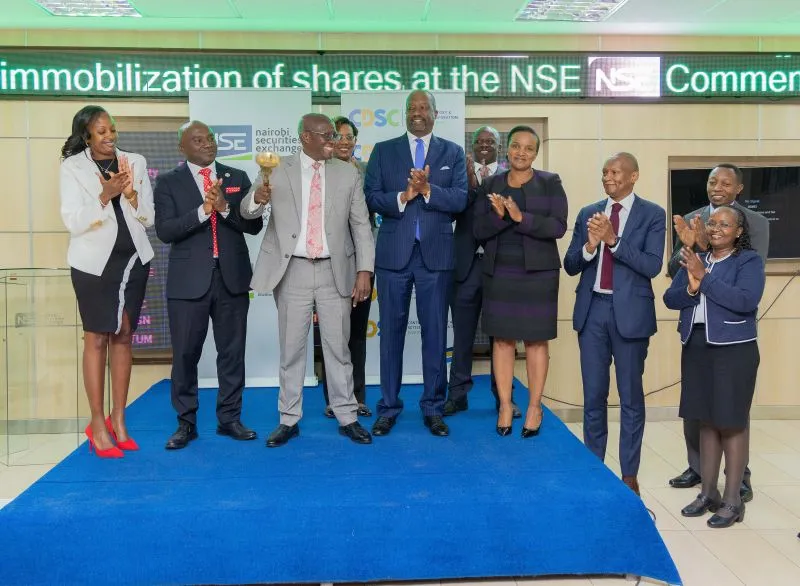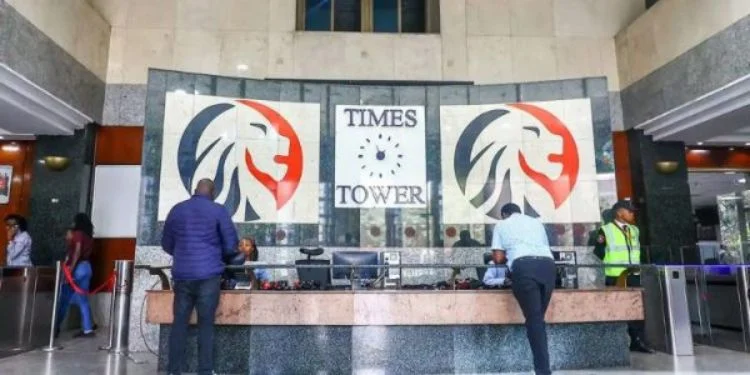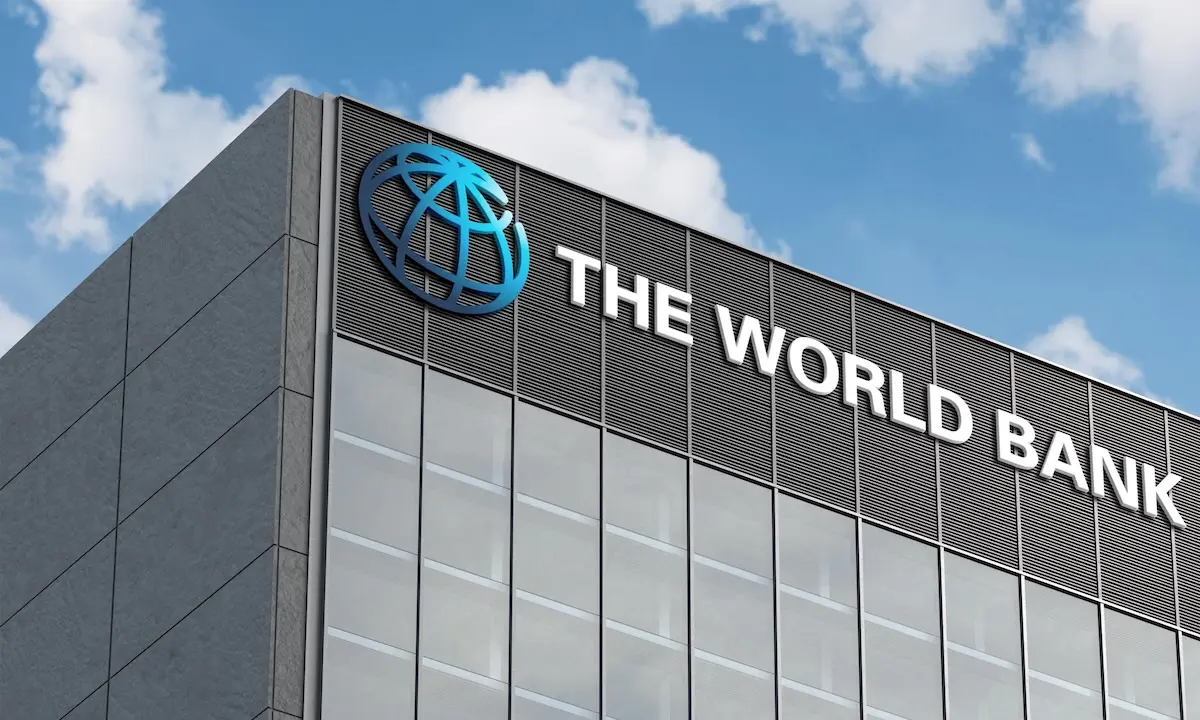The Nairobi Securities Exchange (NSE) has secured a landmark achievement in its quest to position Kenya as a premier investment destination in Africa, following a significant upgrade by one of the world’s most influential index providers. The exchange has been elevated from “Restricted” to “Pass” status on the Efficient Trading Mechanism criterion by the FTSE Russell Index Governance Board, a development that market analysts believe will fundamentally reshape Kenya’s capital markets landscape and attract substantial foreign investment inflows.
This upgrade, announced following the FTSE Equity Country Classification Interim Review conducted in September 2025, represents years of systematic reforms, technological enhancements, and regulatory improvements aimed at aligning Kenya’s capital markets with international best practices. The achievement marks a watershed moment for East Africa’s largest economy and sends a powerful signal to global investors that Kenya is ready to compete on the world stage.
Build the future you deserve. Get started with our top-tier Online courses: ACCA, HESI A2, ATI TEAS 7, HESI EXIT, NCLEX-RN, NCLEX-PN, and Financial Literacy. Let Serrari Ed guide your path to success. Enroll today.
Understanding the FTSE Russell Classification System
The FTSE Equity Country Classification process is globally recognized as one of the most rigorous and comprehensive evaluation frameworks for assessing the quality and accessibility of equity markets worldwide. The system examines markets against a wide range of technical criteria, incorporating detailed feedback and insights from leading institutional investors, fund managers, and market participants across the globe.
FTSE Russell, a subsidiary of the London Stock Exchange Group, provides some of the world’s most widely used benchmark indices, including the FTSE 100, FTSE All-World Index, and various emerging market indices that guide trillions of dollars in investment decisions. The firm’s country classification system evaluates markets across multiple dimensions including market and regulatory environment, custody and settlement procedures, and dealing landscape characteristics.
The Efficient Trading Mechanism criterion specifically assesses whether securities can be traded in flexible lot sizes that accommodate both institutional and retail investors. Markets that restrict trading to large board lots or require purchases in multiples of hundreds or thousands of shares create barriers to entry for smaller investors and can limit overall market liquidity. By achieving a “Pass” rating on this criterion, Kenya has demonstrated that its market infrastructure now meets global standards for trading flexibility and accessibility.
The Significance of Single-Share Trading
At the heart of this upgrade is a fundamental reform that became effective on August 1, 2025: securities listed on the NSE can now be traded in multiples of one share, rather than in predetermined board lots or larger multiples. While this may seem like a technical adjustment, the implications for market accessibility, liquidity, and investor participation are profound.
Prior to this reform, many markets including Kenya required shares to be traded in specific lot sizes, often comprising 100 or more shares. This requirement created significant barriers for retail investors with limited capital, effectively pricing them out of certain stocks and concentrating ownership among wealthier individuals and institutional investors. For example, if a stock was trading at KES 200 per share and the minimum lot size was 100 shares, an investor would need KES 20,000 just to acquire the minimum position, putting many quality investments out of reach for ordinary Kenyans.
The shift to single-share trading dramatically lowers these barriers. An investor can now purchase a single share of any listed company, regardless of its price, making equity ownership truly accessible to Kenyans across all income levels. This democratization of investment access aligns with broader financial inclusion objectives and can help cultivate a culture of equity ownership and long-term wealth building among the population.
From a market microstructure perspective, single-share trading also enhances liquidity by enabling more precise portfolio adjustments and allowing market makers to quote tighter spreads. Institutional investors benefit from the ability to fine-tune their positions without being constrained by rigid lot sizes, while algorithmic trading strategies can operate more efficiently in an environment that permits single-share executions.
NSE Leadership Celebrates Historic Achievement
In a statement released on Tuesday, September 14, NSE Chief Executive Officer Frank Mwiti expressed enthusiasm about the upgrade and its implications for Kenya’s position in global capital markets. Mwiti, who has been instrumental in driving the exchange’s modernization agenda since assuming leadership, characterized the FTSE Russell upgrade as a strong endorsement of the reforms implemented over recent years.
“The FTSE Russell upgrade is a strong endorsement of the modernization and reform agenda championed by the NSE,” Mwiti stated. “It reflects our unwavering commitment to democratizing investment, boosting liquidity, and positioning Kenya as a globally competitive investment hub.”
Mwiti emphasized that the upgrade represents more than just a technical achievement, but rather signals a fundamental transformation in how Kenya’s capital markets operate and are perceived internationally. “We are building a market that is dynamic, transparent, and inclusive, one that attracts both local and international investors,” he added.
The CEO’s comments reflect the NSE’s strategic vision of evolving from a regional exchange into a globally integrated market that can compete for international investment flows alongside more established emerging markets. This ambition requires not only meeting technical standards but also cultivating a reputation for sound governance, regulatory integrity, and investor protection.
Placing Kenya on the Global Investment Map
One of the most significant implications of this upgrade is the enhanced visibility it provides for Kenya among global asset allocators and institutional investors. FTSE Russell’s flagship equity indexes are utilized worldwide for portfolio construction, risk analysis, and asset allocation decisions by pension funds, sovereign wealth funds, endowments, and asset management firms overseeing trillions of dollars in assets.
When a market achieves upgraded status within the FTSE classification framework, it automatically receives greater attention from investment committees and portfolio managers who benchmark their performance against FTSE indices or follow the firm’s research and recommendations. Many institutional investors have formal mandates or internal policies that restrict investments to markets meeting certain quality standards as defined by major index providers like FTSE Russell, MSCI, or S&P Dow Jones Indices.
The NSE emphasized this point in its official statement: “This upgrade places Kenya firmly on the radar of global asset allocators, reinforcing confidence in the country’s capital markets. FTSE Russell’s flagship equity indexes are trusted worldwide for portfolio construction, risk analysis, and asset allocation, making this development a strategic win for Kenya’s integration into global investment flows.”
For Kenya, which has been working to attract foreign direct investment and portfolio inflows to support economic development initiatives, infrastructure projects, and job creation, this enhanced visibility could prove transformative. International investors who may have previously overlooked Kenyan equities due to concerns about market structure or trading mechanics now have one less reason to exclude the market from their investment universe.
Broader Context: Kenya’s Capital Markets Reform Journey
The FTSE Russell upgrade represents the culmination of years of systematic reforms and improvements across Kenya’s capital markets ecosystem. The Capital Markets Authority (CMA), the NSE, and market participants have collaborated on numerous initiatives designed to enhance market efficiency, transparency, and investor protection.
These reforms have included the implementation of automated trading systems, strengthening of regulatory frameworks, enhancement of market surveillance capabilities, improvement of settlement and clearing processes, and adoption of international reporting standards. The NSE has invested significantly in technology infrastructure, migrating to modern trading platforms that can handle higher volumes and provide real-time market data to participants.
Kenya has also worked to strengthen its legal and regulatory framework governing securities markets, implementing provisions to combat market manipulation, insider trading, and other forms of misconduct that can undermine investor confidence. The CMA has enhanced its supervisory capabilities and taken enforcement actions against violators, demonstrating a commitment to maintaining market integrity.
Additionally, Kenya has focused on expanding the range of investment products available to investors. The NSE has facilitated the listing of exchange-traded funds (ETFs), real estate investment trusts (REITs), and derivatives products, providing investors with more tools for portfolio diversification and risk management. These product innovations complement the structural improvements reflected in the FTSE upgrade.
One decision can change your entire career. Take that step with our Online courses in ACCA, HESI A2, ATI TEAS 7, HESI EXIT, NCLEX-RN, NCLEX-PN, and Financial Literacy. Join Serrari Ed and start building your brighter future today.
Impact on Retail Investor Participation
Perhaps the most immediately tangible benefit of this upgrade will be felt by retail investors throughout Kenya who have been deterred from equity market participation by high minimum investment requirements. By enabling single-share purchases, the NSE has effectively eliminated one of the most significant barriers to entry for ordinary Kenyans seeking to build wealth through stock market investment.
This democratization of access has important implications for financial inclusion, a priority for both the Kenyan government and financial sector regulators. When equity ownership is concentrated among wealthy individuals and institutions, the wealth-building opportunities provided by capital appreciation and dividend income remain inaccessible to the majority of the population. By contrast, when retail investors can participate meaningfully in equity markets, the benefits of economic growth and corporate profitability are more widely distributed.
The single-share trading reform also creates opportunities for innovative investment products and services targeted at retail investors. Mobile-based investment platforms, robo-advisors, and fractional share programs can now operate more effectively in the Kenyan market, potentially bringing millions of new investors into the formal capital markets. Companies like M-Pesa have already demonstrated Kenyans’ enthusiasm for mobile-based financial services, and the same technology could facilitate widespread equity ownership.
Educational initiatives will be crucial to ensuring that newly accessible equity markets translate into positive outcomes for retail investors. The NSE, CMA, and market participants will need to continue investing in financial literacy programs that help investors understand risk, diversification, valuation, and other fundamental concepts necessary for successful equity investing.
Enhanced Market Liquidity and Efficiency
Beyond accessibility, the shift to single-share trading is expected to significantly enhance market liquidity, creating deeper and more active markets that benefit all participants. Liquidity, which refers to the ease with which securities can be bought or sold without causing significant price movements, is a critical determinant of market quality and efficiency.
When trading is restricted to large lot sizes, potential buyers and sellers may be discouraged from entering the market if they cannot transact in their desired quantities. This fragmentation of potential order flow reduces overall liquidity and can lead to wider bid-ask spreads, meaning investors face higher transaction costs. By contrast, when shares can be traded in any quantity, more orders enter the market, creating a continuous flow of buying and selling interest that narrows spreads and reduces price volatility.
Improved liquidity makes Kenya’s equity market more attractive to both domestic and international institutional investors, who require the ability to enter and exit positions efficiently without moving prices significantly. Pension funds, insurance companies, and mutual funds managing large pools of capital need liquid markets to implement their investment strategies effectively and meet redemption requests from their clients.
For listed companies, enhanced market liquidity brings several benefits. Share prices become more informative and accurately reflect fundamental value when trading is active and continuous. This improved price discovery makes equity a more effective financing tool, as companies can be more confident that new share issuances will be priced fairly. Additionally, liquid markets facilitate employee stock ownership programs, management equity compensation, and other initiatives that align stakeholder interests.
Alignment with Global Best Practices
The FTSE Russell upgrade affirms that Kenya’s capital markets now align with global best practices in key areas of market structure and operation. This alignment is crucial for attracting international investment and integrating Kenya into global capital flows. Global investors need confidence that markets operate according to recognized standards for transparency, efficiency, and fairness before committing significant capital.
International best practices in equity markets encompass a wide range of operational, regulatory, and structural elements. These include transparent and rules-based regulation, effective market surveillance and enforcement, reliable clearing and settlement systems, protection of minority shareholder rights, robust corporate governance standards, and clear disclosure requirements for listed companies.
Kenya’s journey toward alignment with these standards has involved learning from more developed markets while adapting approaches to local conditions. The NSE has engaged with international exchanges, regulatory bodies, and market infrastructure providers to understand global standards and implement appropriate reforms. This process of continuous improvement positions Kenya favorably relative to other African markets and strengthens the country’s competitiveness as an investment destination.
The single-share trading reform that triggered the FTSE upgrade is standard practice in most developed markets and increasingly in emerging markets as well. Major exchanges in Europe, North America, and Asia have long permitted single-share transactions, and emerging markets from India to Brazil have adopted similar approaches. Kenya’s embrace of this practice brings it into alignment with global norms and removes a point of differentiation that may have previously deterred international investors.
Complementary Initiatives: NSE Banking Index and Leadership Appointments
The FTSE Russell upgrade comes amid other positive developments at the NSE that collectively strengthen the exchange’s value proposition to investors. Recently, the NSE launched a new Banking Index designed to track the performance of eleven Kenyan banks listed on the exchange. This sector-specific index provides investors and analysts with a focused benchmark for assessing the health and performance of Kenya’s crucial banking sector.
Banking indices serve several important functions in capital markets. They enable the creation of banking sector-focused investment products such as ETFs or index funds, facilitate performance benchmarking for active managers specializing in financial stocks, and provide a clear signal about sector trends that may have broader economic implications. Given the central role of banks in Kenya’s financial system and economy, a dedicated banking index enhances market transparency and analytical capabilities.
Additionally, the NSE has made strategic appointments to its leadership, including the addition of new non-executive directors to strengthen governance and bring diverse expertise to the board. Strong governance is essential for maintaining stakeholder confidence and ensuring the exchange operates with integrity and in the public interest. These appointments signal the NSE’s commitment to maintaining high standards of corporate governance as it navigates an increasingly complex and competitive global environment.
Potential Catalysts for Market Growth
Looking ahead, the FTSE Russell upgrade could serve as a catalyst for several positive developments in Kenya’s capital markets. First, it may encourage more companies to pursue initial public offerings (IPOs) or secondary listings on the NSE. Companies considering going public often evaluate whether the exchange provides sufficient liquidity, investor access, and international visibility to justify the costs and obligations of being publicly traded. An exchange with FTSE recognition and growing international investor interest becomes a more attractive listing venue.
Second, the upgrade may accelerate the growth of Kenya’s asset management industry. As more retail and institutional capital flows into equities, opportunities expand for local fund managers to launch new investment products and grow assets under management. A thriving asset management industry can, in turn, provide a more stable and sophisticated investor base for listed companies.
Third, enhanced international investor interest could reduce the cost of capital for Kenyan companies. When more investors compete to own shares of quality companies, valuations rise and the cost of raising equity capital falls. Lower capital costs enable companies to fund growth initiatives more economically, potentially accelerating business expansion and job creation.
Fourth, success in achieving the FTSE upgrade may inspire confidence that Kenya can pursue additional capital markets milestones, such as graduation to higher classifications within the FTSE framework or recognition by other major index providers. These subsequent achievements would further strengthen Kenya’s integration into global investment flows and solidify its status as a leading emerging market.
Challenges and Considerations Moving Forward
While the FTSE Russell upgrade represents a significant achievement, challenges remain in fully realizing its potential benefits. Kenya’s capital markets still face obstacles including limited liquidity in many smaller stocks, relatively few listed companies compared to the size of the economy, and persistent challenges in attracting major new listings. The NSE has approximately 60 listed companies, a modest number compared to exchanges in similarly sized economies.
Macroeconomic challenges including inflation, currency volatility, and fiscal pressures also affect investor sentiment toward Kenyan equities. Global investors evaluate country-specific risks alongside market structure quality, and economic uncertainties can deter investment regardless of how well-functioning the market infrastructure may be. The NSE’s success in attracting international capital will depend partly on factors beyond the exchange’s direct control.
Corporate governance scandals or market integrity incidents could undermine the credibility gains from the FTSE upgrade. Maintaining investor confidence requires sustained vigilance in enforcing rules, protecting minority shareholders, and ensuring that listed companies meet high standards of disclosure and conduct. A single high-profile case of fraud or misconduct could damage the reputation that Kenya has worked years to build.
Finally, competition from other African markets seeking to attract international investment capital means Kenya cannot rest on its achievements. Exchanges in Nigeria, South Africa, Egypt, and Morocco are also pursuing reforms and seeking international recognition. Kenya’s advantage will depend on continuous improvement and innovation rather than one-time achievements.
Conclusion: A Transformational Moment for Kenyan Capital Markets
The FTSE Russell upgrade from Restricted to Pass on the Efficient Trading Mechanism criterion represents far more than a technical adjustment to Kenya’s capital markets classification. It embodies years of systematic reform, signals Kenya’s readiness for greater integration into global investment flows, and creates tangible opportunities for millions of Kenyans to participate in equity ownership and wealth building.
As NSE Chief Executive Officer Frank Mwiti emphasized, “This is not just an upgrade; it is a signal to the world: Kenya is ready for the next era of investment.” That signal resonates not only with international fund managers and institutional investors, but also with Kenyan entrepreneurs considering public listings, retail investors seeking accessible wealth-building opportunities, and policymakers working to position Kenya as East Africa’s financial hub.
The true measure of this achievement will emerge over the coming years as Kenya demonstrates its ability to capitalize on enhanced international visibility, attract new listings, grow trading volumes, and cultivate a vibrant and inclusive capital markets ecosystem. The foundation has been laid, but sustained effort will be required to build upon this milestone and fulfill the promise of a truly world-class African stock exchange.
For investors, both local and international, the message is clear: Kenya’s capital markets have reached a new level of maturity and accessibility. The combination of regulatory quality, market infrastructure, and reform momentum positions Kenya as one of Africa’s most compelling investment destinations. As global capital increasingly seeks opportunities beyond traditional developed markets, Kenya has positioned itself to capture its share of those flows and channel them toward productive economic development.
Ready to take your career to the next level? Join our Online courses: ACCA, HESI A2, ATI TEAS 7 , HESI EXIT , NCLEX – RN and NCLEX – PN, Financial Literacy!🌟 Dive into a world of opportunities and empower yourself for success. Explore more at Serrari Ed and start your exciting journey today! ✨
Track GDP, Inflation and Central Bank rates for top African markets with Serrari’s comparator tool.
See today’s Treasury bonds and Money market funds movement across financial service providers in Kenya, using Serrari’s comparator tools.
Photo source: Google
By: Montel Kamau
Serrari Financial Analyst
16th October, 2025
Article, Financial and News Disclaimer
The Value of a Financial Advisor
While this article offers valuable insights, it is essential to recognize that personal finance can be highly complex and unique to each individual. A financial advisor provides professional expertise and personalized guidance to help you make well-informed decisions tailored to your specific circumstances and goals.
Beyond offering knowledge, a financial advisor serves as a trusted partner to help you stay disciplined, avoid common pitfalls, and remain focused on your long-term objectives. Their perspective and experience can complement your own efforts, enhancing your financial well-being and ensuring a more confident approach to managing your finances.
Disclaimer: This article is for informational purposes only and does not constitute financial advice. Readers are encouraged to consult a licensed financial advisor to obtain guidance specific to their financial situation.
Article and News Disclaimer
The information provided on www.serrarigroup.com is for general informational purposes only. While we strive to keep the information up to date and accurate, we make no representations or warranties of any kind, express or implied, about the completeness, accuracy, reliability, suitability, or availability with respect to the website or the information, products, services, or related graphics contained on the website for any purpose. Any reliance you place on such information is therefore strictly at your own risk.
www.serrarigroup.com is not responsible for any errors or omissions, or for the results obtained from the use of this information. All information on the website is provided on an as-is basis, with no guarantee of completeness, accuracy, timeliness, or of the results obtained from the use of this information, and without warranty of any kind, express or implied, including but not limited to warranties of performance, merchantability, and fitness for a particular purpose.
In no event will www.serrarigroup.com be liable to you or anyone else for any decision made or action taken in reliance on the information provided on the website or for any consequential, special, or similar damages, even if advised of the possibility of such damages.
The articles, news, and information presented on www.serrarigroup.com reflect the opinions of the respective authors and contributors and do not necessarily represent the views of the website or its management. Any views or opinions expressed are solely those of the individual authors and do not represent the website's views or opinions as a whole.
The content on www.serrarigroup.com may include links to external websites, which are provided for convenience and informational purposes only. We have no control over the nature, content, and availability of those sites. The inclusion of any links does not necessarily imply a recommendation or endorsement of the views expressed within them.
Every effort is made to keep the website up and running smoothly. However, www.serrarigroup.com takes no responsibility for, and will not be liable for, the website being temporarily unavailable due to technical issues beyond our control.
Please note that laws, regulations, and information can change rapidly, and we advise you to conduct further research and seek professional advice when necessary.
By using www.serrarigroup.com, you agree to this disclaimer and its terms. If you do not agree with this disclaimer, please do not use the website.
www.serrarigroup.com, reserves the right to update, modify, or remove any part of this disclaimer without prior notice. It is your responsibility to review this disclaimer periodically for changes.
Serrari Group 2025
















